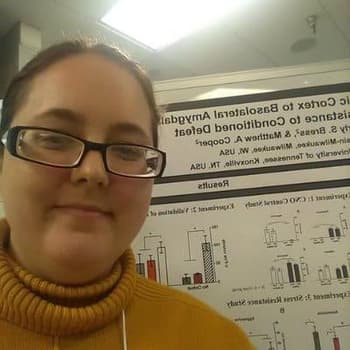Habit Reversal Training in Addiction Therapy
Written by Thomas Christiansen
& Medically Reviewed by Dr. Brooke Dulka, PHD
Medically Reviewed
Up to Date
Updated 07/15/2020
Behavioral therapies have proven useful for the treatment of addiction. Habit reversal training (HRT) is one such therapy used in addiction treatment. Learning more about what HRT is, the components of the process and how it can be used to manage a variety of behavioral disorders may help those struggling with addiction.
What is Habit Reversal Training?
Habit reversal training — sometimes called habit reversal therapy — is a type of intervention used to treat a variety of behavioral disorders that involve repetitive behaviors. It allows people to become more aware of their habits and trains them to act in different ways. It is often used in impulse control disorder treatment (such as for disorders that involved nervous tics). Essentially, it is a way of training someone to replace their bad habits by creating new habits that are healthier through several stages of training.
Habit Reversal Training Components
There are several habit reversal training steps that a person must learn while undergoing this therapy. The goal is to learn how to form new habits and stop the old ones. These training components include:
Gaining Awareness
The first step is to become aware of self-destructive habits. First gaining awareness of these habits is necessary before one can stop them. This training involves working closely with a counselor in order to better look for the early warning signs of engaging in unhealthy habits.
Developing a Competing Response
Next, the goal is to replace the old habit with a new one. This is called developing a competing response. Some competing response examples in the case addiction therapy are screwing the lid of a bottle shut instead of opening it or pouring alcohol into the sink instead of into a glass.
Relaxation Training
Another component of HRT is to learn how to relax. In other words, it is relaxation training to learn how to deal with the stress of performing these habits. Even performing competing habits can be stressful, especially at first. Some relaxation techniques include: deep breathing, progressive muscle relaxation, and imagery. These can be particularly useful as one gets better at identifying triggers.
Building Motivation
Operant conditioning techniques are used next to build motivation, specifically positive and negative reinforcement. Reinforcement in meant to strengthen a behavior (the new habit). During positive reinforcement, the loved ones of a person seeking treatment praise them. For negative reinforcement, clients make a list of all the ways their habits and behavior have caused harm.
Generalization
Finally, generalization is when a person learns to transfer all of these skills from the clinic setting into their daily life. In this way, skills are generalized from “safe” settings into real-world scenarios.
HRT in Addiction and Mental Health Treatment Therapy
Habit reversal training has been used as a part of mental health treatment since the early 1970s. It has mainly been used to help in the treatment of disorders such as Tourette’s syndrome, trichotillomania (hair-pulling), nail-biting, skin picking, and stuttering.
Recently, the argument has been made for the use of this behavioral therapy for addiction, specifically alcohol use disorder (AUD). This reasoning behind this idea is the finding that AUD patients show an automatic approach bias to alcohol cues. It is also based on the finding that repeated self-administration of alcohol gradually shifts the mechanisms driving behavior to stimulus-response associations. In other words, cravings and consumption are eventually triggered by alcohol-associated stimuli and cues.
Does Habit Reversal Training Work
Habit reversal training works by shifting habits through mindfulness and motivation. It also involved practicing changes in behavior through alternative and competing responses. Further, it uses operant conditioning techniques, which psychologists and neuroscientists have been using for years to understand behavior.
Trichotillomania habit reversal training has been shown to be particularly effective. Habit reversal training and skin picking research has also been promising. Although more research is needed, HRT may also prove to be useful for the treatment of AUD and other substance abuse problems.
Contact The Recovery Village Palm Beach at Baptist Health to speak with a representative about how professional addiction treatment can address a substance use disorder and any co-occurring mental health disorders. You deserve a healthier future, call today.
View Sources
Miltenberger, Raymond; et al. “Applying behavior analysis to clinical problems: Review and analysis of habit reversal.” Journal of Applied Behavior Analysis, 1998. Accessed September 22, 2019.
Stock, Ann-Kathrin. “Barking up the wrong tree: why and how we may need to revise alcohol addiction therapy.” Frontiers in Psychology, 2017. Accessed September 22, 2019.
Gladwin, Thomas E. “Attentional bias variability and cued attentional bias for alcohol stimuli.” Addiction Research & Theory, 2017. Accessed September 22, 2019.
de Wit, Sanne, and Anthony Dickinson. “Associative theories of goal-directed behavior: a case for animal-human translational models.” Psychological Research, 2009. Accessed September 22, 2019.
Authorship



